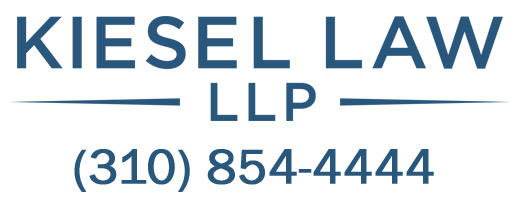Social Media and Privacy 101: How to Protect Your Data on Social Media
Social media has revolutionized the way we connect, communicate, and share our lives with the world. However, that convenience and interconnectedness come with a significant trade-off. Social media privacy issues are a constant concern for many consumers. These days, it’s not hackers and phishers we have to worry about; social media companies themselves are sometimes involved in data privacy violations.
For those who have had their data stolen, stored, or shared without their consent, participating in class actions is often the best possible recourse. It not only provides compensation to people whose lives have been affected by social media privacy issues, it also helps hold those responsible accountable. If you have been the victim of a social media data privacy violation, Kiesel Law may be able to help. Contact us to schedule a consultation.
Meanwhile, if you haven’t been the victim of a social media data privacy violation yet, we recommend taking steps to protect yourself. In this guide, we’ll explore some of the biggest concerns involving social media and privacy today. We’ll also tell you how to protect your data on social media.
Social Media Privacy Issues
The first step to keeping your data safe online is to educate yourself on the current state of social media and privacy online. Here are some of the biggest social media privacy concerns you should be aware of…
Data Collection and Profiling
Social media platforms collect a vast amount of user data, including your posts, likes, comments, location, device information, and more. This data is often used to create detailed user profiles, allowing advertisers and the platform itself to target users with personalized content and ads.
Third-Party Data Sharing
Many social media platforms share user data with third-party developers and advertisers. This data sharing can lead to the creation of comprehensive user profiles, which can then be used for targeted advertising and other purposes, often without users’ explicit consent.
Privacy Settings and Defaults
Social media platforms may default to settings that prioritize user data sharing rather than privacy. Users often need to actively adjust these settings to restrict data sharing and protect their privacy.
Data Breaches
Social media platforms are attractive targets for hackers and cybercriminals. Data breaches can expose users’ personal information, including email addresses, passwords, and other sensitive data.
Psychological Manipulation
Social media algorithms are designed to keep users engaged, often leading to addictive behaviors. The platforms use personal data to curate content, which can lead to echo chambers and the spread of misinformation.

How to Protect Your Data on Social Media
Now that you know more about the relationship between social media and privacy issues, you’re ready to learn how to protect your data on social media. Below, we’ve compiled a list of practical tips that you can use to safeguard your personal information online…
Review Privacy Settings
Regularly review and adjust your privacy settings on social media platforms. Limit the information you share publicly and restrict access to personal data.
Be Selective with Permissions
Only grant necessary permissions to apps and websites that request access to your social media accounts. Review and revoke permissions for apps you no longer use or trust.
Use Strong, Unique Passwords
Create strong, unique passwords for your social media accounts. Consider using a password manager to securely store and generate passwords.
Enable Two-Factor Authentication (2FA)
Enable 2FA on your social media accounts for an extra layer of security. This typically involves receiving a verification code on your phone or email when logging in.
Limit Personal Information
Be cautious about sharing sensitive personal information such as your address, phone number, or full birthdate on social media profiles.
Manage App Permissions
Review and manage app permissions regularly. Revoke access to apps that no longer need access to your data.
Be Wary of Phishing
Be cautious about clicking on links or providing personal information in response to unsolicited messages or emails. Scammers often use social media for phishing attacks.
Use Privacy-Focused Platforms
Not all websites are created equal. Consider using alternative social media platforms that prioritize user privacy and data protection. Keep in mind that their popularity may be lower than more mainstream platforms.
Educate Yourself
Stay informed about data privacy issues, social media policies, and privacy regulations. Understanding the landscape will help you make informed decisions.
Regularly Review Your Activity
Periodically review your social media activity, including posts, likes, and friends. Remove any content or connections that you no longer feel comfortable with.
Practice Digital Detox
Take breaks from social media to reduce your digital footprint and protect your mental health. Consider detox periods to minimize exposure to targeted content.
Support Data Privacy Legislation
Advocate for stronger data privacy regulations and support initiatives that prioritize user rights and data protection.

Has Your Online Privacy Been Violated? We Can Help
By taking proactive steps to protect your personal information and by being mindful of your online activity, it’s possible to navigate the digital landscape more safely. That said, private data is very valuable, and that means it will always be a target for malicious actors. Even if you take every possible precaution, you could still suffer a data privacy breach.
Fortunately, there are ways of holding social media platforms accountable. If you’ve had your data stolen or shared due to the negligence or wrongful action of a social media company, the attorneys at Kiesel Law may be able to help you see justice done.


